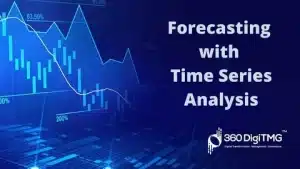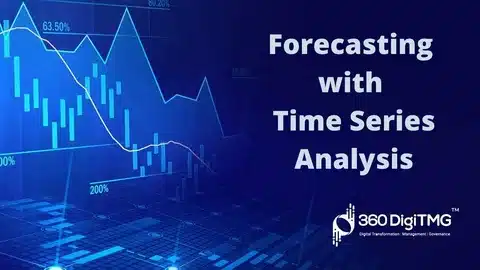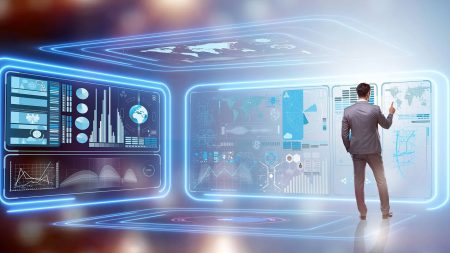Time series forecasting is a crucial technique in data science, allowing businesses and organizations to predict future values based on historical data. This powerful tool plays a fundamental role in fields ranging from finance and healthcare to retail and manufacturing. As data science continues to evolve, time series forecasting is becoming more advanced and accessible, helping professionals make informed decisions. If you’re planning to enroll in a data science course in Bangalore, understanding the key trends and tools in time series forecasting will be essential for staying ahead in this rapidly developing field.
What Is Time Series Forecasting?
Time series forecasting involves predicting future data points by analyzing historical data over time. The primary goal is to identify patterns, trends, and seasonal variations that can be used to make accurate predictions. Time series data is collected in regular intervals, such as daily, monthly, or yearly, and is often used in scenarios like predicting stock prices, sales forecasts, weather predictions, and even traffic patterns.
In a course, students learn how to use various techniques to model and forecast time series data. These methods are vital because they provide valuable insights into future outcomes based on past performance, helping businesses optimize operations, manage risks, and plan for growth.
The Growing Importance of Time Series Forecasting in 2025
Time series forecasting has become increasingly important as businesses rely more on data-driven decisions. In 2025, advancements in data collection, machine learning, and artificial intelligence are persistently pushing the boundaries of what is possible in forecasting. As data becomes more accessible and sophisticated, the ability to make accurate predictions based on time series data is becoming a competitive advantage for many industries.
A data science course often incorporates forecasting techniques, as understanding these methods is crucial for anyone working with data in the modern world. The ability to leverage time series forecasting can help organizations predict future demand, improve supply chain management, and enhance customer satisfaction by anticipating needs before they arise.
Key Trends in Time Series Forecasting for 2025
As we move further into 2025, several emerging trends in time series forecasting are worth noting. These trends are effectively reshaping how organizations approach data analysis and are integral to the future of data science.
Integration of Machine Learning and AI
Both have revolutionized time series forecasting. In previous years, traditional statistical methods like AutoRegressive Integrated Moving Average and Exponential Smoothing were the go-to models for forecasting. However, in 2025, machine learning models, such as Long Short-Term Memory (LSTM) networks, Random Forests, and Gradient Boosting, are becoming more widely used. These models are better equipped to handle complex and non-linear patterns in various time series data, offering more accurate predictions and reducing errors.
Data scientists who complete a course in Bangalore will learn how to incorporate machine learning algorithms into their forecasting models. This integration of AI with traditional methods is allowing for more dynamic and adaptable forecasting, which is essential for industries that need to react quickly to changing conditions.
Focus on Automation
Automation is another key trend in time series forecasting for 2025. With the increasing volume of data, manually processing and analyzing time series data can be overwhelming and time-consuming. Automated tools and platforms are gradually making it easier for data scientists to manage and forecast large datasets efficiently.
Learning how to use these automated forecasting tools is an essential part of any data science course, especially for those who want to stay relevant in a field that is increasingly focused on speed and efficiency.
Increased Use of Big Data
The availability of big data has had a profound impact on time series forecasting. As businesses collect more data from a variety of sources—such as sensors, social media, and customer transactions—forecasting models can make more accurate predictions by incorporating a wider range of inputs.
In 2025, companies are using big data to analyze not only historical data but also external factors that might impact future trends, such as economic indicators, weather conditions, and market sentiment. The ability to incorporate big data into time series forecasting models is opening up new opportunities for more precise and robust predictions.
Tools for Time Series Forecasting in 2025
Several tools and frameworks are available for time series forecasting, each with its own advantages. As the field evolves, new technologies are making it easier for data scientists to create powerful forecasting models.
Prophet by Facebook
Prophet is an open-source forecasting tool developed by Facebook that is designed for forecasting time series data with daily or seasonal patterns. It is significantly useful when working with time series data that has missing values or is subject to significant changes. Prophet is user-friendly and designed to scale with large datasets, making it a popular choice for data scientists.
Students enrolled in a data science course in Bangalore may learn how to use Prophet as part of their coursework, as it is a widely used tool in the industry for time series forecasting.
TensorFlow and Keras for LSTM Models
Long Short-Term Memory (LSTM) networks, a genre of recurrent neural network (RNN), are well-suited for time series forecasting tasks. TensorFlow and Keras are popular frameworks for building and training LSTM models. These models are capable of capturing long-term dependencies in time series data, making them ideal for complex forecasting tasks.
For those pursuing a course, mastering LSTM models using TensorFlow or Keras will be invaluable. LSTM networks can provide highly accurate predictions for complex time series data and are expected to see increased use in 2025.
ARIMA and SARIMA Models
Despite the rise of machine learning, traditional statistical models like ARIMA (AutoRegressive Integrated Moving Average) and SARIMA (Seasonal ARIMA) are still widely used in time series forecasting. These models work by analyzing the historical data and predicting future values based on identified patterns.
For students pursuing a course in Bangalore, learning these foundational statistical models is crucial. These models are still highly relevant and provide a strong foundation for more advanced machine learning-based approaches.
The Role of Courses in Time Series Forecasting
A course plays an inseparable role in equipping students with the required skills and knowledge needed to apply time series forecasting techniques. Whether you are learning how to implement machine learning models or working with traditional statistical methods, a comprehensive data science curriculum will provide the tools necessary for success in this field.
For those looking to advance their careers, taking a course in Bangalore can definitely offer hands-on experience with the current tools and frameworks usually used in time series forecasting. With the rapid advancements in the field, staying up to date with the newest trends is essential.
Conclusion
Time series forecasting is a significant aspect of data science that continues to evolve in 2025. The integration of machine learning, automation, and big data is revolutionizing how predictions are made, offering more accurate and reliable forecasts. Data scientists need to be familiar with the latest tools and techniques to succeed in this dynamic field.
Whether you are considering enrolling in a data science course in Bangalore, gaining expertise in time series forecasting will be essential for staying competitive. By understanding the trends and tools shaping time series forecasting, you can position yourself for success in the ever-growing world of data science.
ExcelR – Data Science, Data Analytics Course Training in Bangalore
Address: 49, 1st Cross, 27th Main, behind Tata Motors, 1st Stage, BTM Layout, Bengaluru, Karnataka 560068
Phone: 096321 56744





